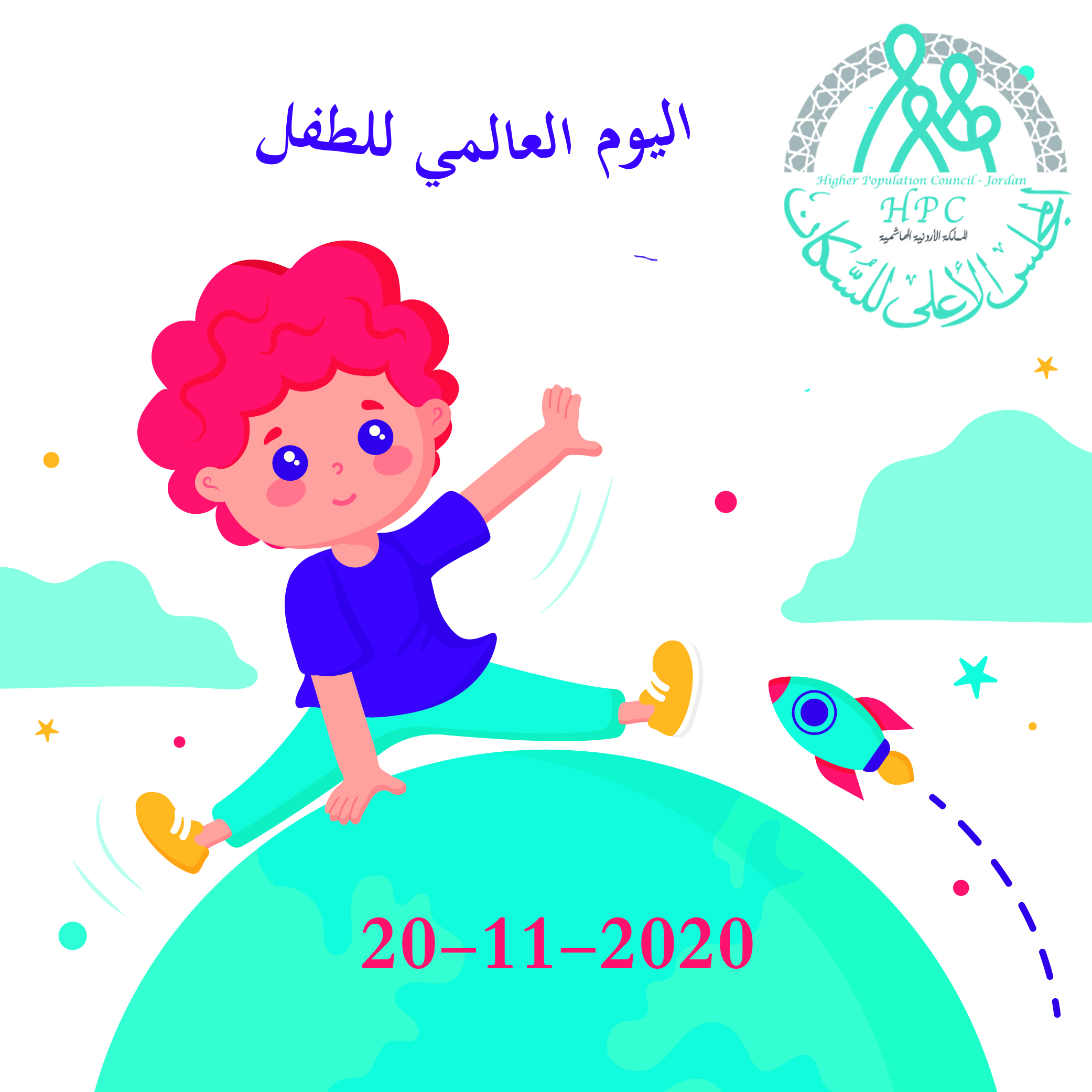

Jordan and the rest of the World will celebrate today, Friday, World Children’s Day, which falls on the 20th of November of each year and aims to promote international togetherness, awareness among children worldwide, and improving children's welfare.
In a special press release on this occasion, HPC Secretary General, Dr. Abla Amawi, said that no other investment is better than investment in children as they are the future of Jordan. Amawi pointed out that Jordan has made great strides towards promoting children’s rights and child development in line with the Convention on the Rights of the Child and the Sustainable Development Goals to ensure the inclusion of all children in economic and social progress.
Amawi noted that Jordan has made a quantitative leap in education and managed to build a strong foundation for inclusive and high-quality education, and enabled access to free, mandatory and inclusive education for all citizens up to the age of sixteen. This has reflected positively on national indicators, mainly those pertaining to enrollment rate of this group in education, reaching 98.02% (98.17% for males and 97.87% for females) as per the Academic Year Statistical Report for 2018-2019. On the other hand, the Population and Family Health Survey for 2017-2018 revealed that 86% of children aged 12-23 months have received all the basic vaccinations, and that under-five child mortality reached 19 deaths per 1,000 live births, while infant mortality rate stabilized at around 17 deaths per 1,000 live births.
Amawi indicated that despite the achievements made by Jordan, challenges still stand, as one in every three children (32%) in the age group of (6-59 months) suffers from anemia, and a quarter of child mortalities is caused by traffic accidents. In addition, 79% of school-age persons with disabilities are not enrolled in schools.
The results of the Population and Family Health Survey for (2017-2018) revealed that 3% of children under the age of 18 in Jordan are orphans (2.7% males and 3% females). This group needs particularly more social, economic and educational care to ensure that they have the needed protection. The results also showed that 5% of Syrian children living in Jordan are orphans who have lost one or both parents. The survey further provides that the percentage of children between the ages of one and 14 years old who were exposed to any method of violent discipline by a caregiver, in the month prior to the survey, was 81.3%, (82.7% males, and 79.6%.females).
The Higher Population Council (HPC) said in the press release that the percentage of marriage contracts registered with the Supreme Judge Department involving females under the age of 18 reached around 10.7% in 2019. Furthermore, according to the National Child Labor Survey of 2016, the number of working children in Jordan reached nearly 76 thousand, or 1.87% of total children aged (5-17).
Furthermore, HPC noted that the Covid-19 pandemic has increased the social and economic challenges facing the most vulnerable children and youth. A study carried out by UNICEF in Jordan covering a sample of Jordanian and Syrian families, showed a decrease in the average income of some families. The study found that the number of households with a monthly income of less than 100 JD (140 USD) has doubled since before the COVID-19 pandemic, and only 28 per cent of households have adequate finances to sustain themselves for a two-week period. 60 per cent of families have suffered disruption of their work due to the pandemic, 17 per cent of children under 5 have not received their basic vaccinations, and 23 per cent of children who were sick during COVID-19 did not receive medical attention, largely due to fear of the virus and lack of funds.
Moreover, the COVID-19 pandemic has laid bare the digital divide facing children from the poorest households and the need for concerted efforts to support their learning recovery. Children in 25 per cent of the families surveyed did not access the official national online learning platform during lockdown and only 31 per cent of households have access to a Wi-Fi connection at home.
HPC stressed the need to ensure that boys and girls grow in a safe and secure environment that guarantees their access to education, health and social protection services. HPC also called for enhancing interventions to support development and improve the situation of children, youth and local communities, increasing investment in quality and inclusive education, increasing equitable and fair access to early education, investing in the economic empowerment of youth, enhancing cooperation with stakeholders to improve the use of data in policy formulation, developing public budgets that are sensitive to the needs of children, and focusing on the needs of the most vulnerable groups during crisis management and recovery.







